How Ronald and Nancy Reagan Constructed the Perfect American Myth
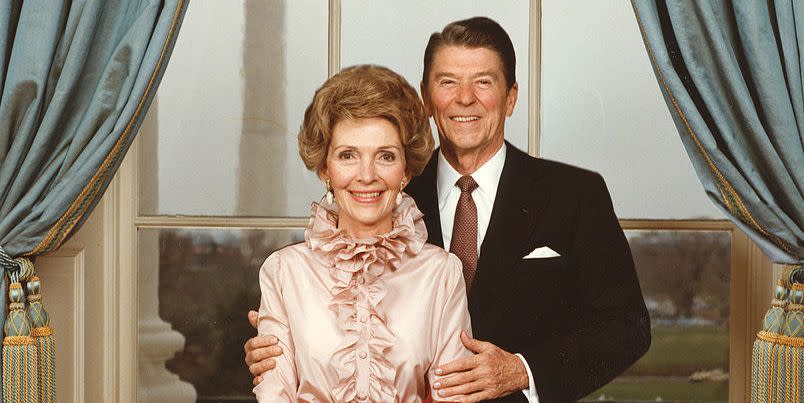
Even though neither is alive, Ronald and Nancy Reagan are giants in American politics. Within the Republican Party, their legacy looms large, with everyone from Ted Cruz to Jeb Bush citing the former president as a major influence, and even President Trump has adopted Reagan's former campaign slogan: "Make America Great Again." Referencing Ronald Reagan has become something of a purity test within the GOP—he's been brought up in every Republican primary debate since 1999. Democrats and Trump defectors, too, have invoked the 40th president as a contrast to Trump. You can find many a think-piece revolving around a certain question: Are today's Republicans the party of Reagan or Trump?
Director Matt Tyrnauer (Where’s My Roy Cohn?, Studio 54) argues that this is a false binary. And, in fact, that the Reagan legacy as a whole is one ready for re-evaluation. In his new Showtime docuseries, The Reagans, Tyrnauer takes a critical look Nancy and Ronald's road to the White House, their tenure in office, and the lasting effects of Reaganism on the Republican Party and American society. The show shines a harsh light on the Reagans' ability to manipulate the media to suit their needs and construct their own narratives. It also reevaluates Reagan's policies, paying special attention to under-looked aspects, like race relations and the HIV pandemic. Throughout the series, Tyrnauer tackles these topics by speaking with Reagan White House veterans, including former Secretary of State George Schultz, Chief of Staff and Secretary of the Treasury James Baker III, and even Nancy and Ronald's son, Ronald Reagan Jr.
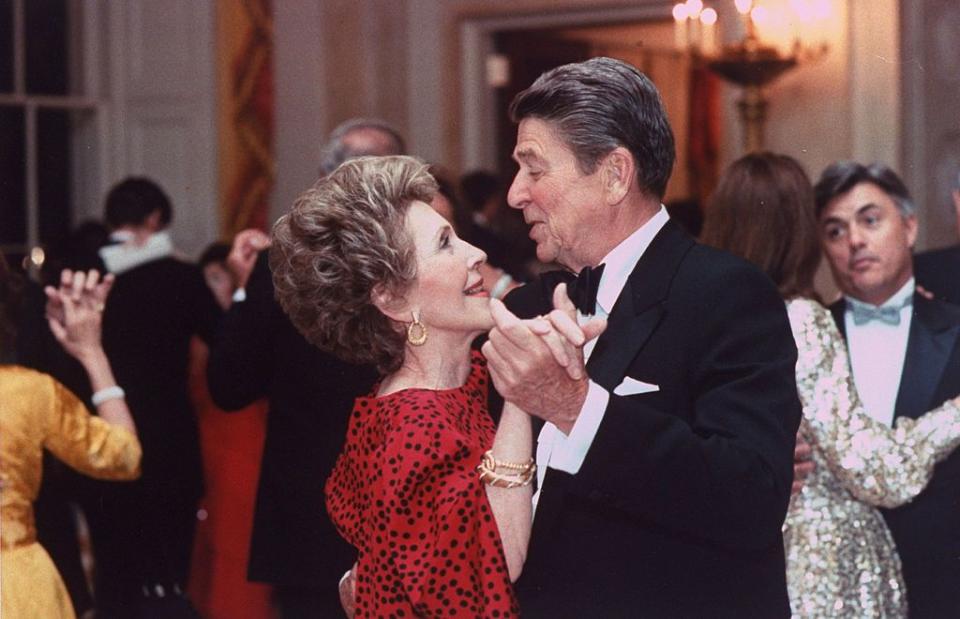
Just before the 2020 election, T&C spoke with Tyrnauer about the series, discussing the Reagans' "myth-making," their continued relevance, and their unexpected similarities to both the Kennedys and the Trumps.
Why did you decide to make this series now?
It's something that's been on my mind for a while. I've always thought that the legacy of Ronald Reagan and the Reagans as a couple was under-explored and, in many ways, misunderstood. I also think that a lot of the politics that we're living through in our country right now have a lot to do with the Reagan Eighties. I think that a re-exploration of those years, what led to them and what the truth behind Reagan and "the Reagans” is, is very worth looking at freshly, in light of the last four to five years of American politics.
And what part of this re-exploration do you think is going to resonate most with audiences today?
Well, people forget that Reagan being elected president, for a major part of the country, was virtually unthinkable. He wasn't taken seriously by many people, especially the Left, but also some people in the middle. The idea of a movie star with relatively limited political experience getting elected President of the United States was completely unthinkable. However, in hindsight, it makes perfect sense that a movie star would be elected president at the end of the 20th century, given that the 20th century was the century of movies, and movies are the common language of the electorate.
Likewise, it makes sense that 20 years into the 21st century, a reality TV star with a flair for Twitter would be elected president, because social media is the lingua franca of our times. Trump, as an entertainer, being a viable politician, I think was made possible by another entertainer, Reagan, becoming a very successful politician and, in his time, a popular president. However, I think the legacy of Reagan is ripe for reexamining and again, especially in light of the Trump presidency.
An old picture with Nancy and Ronald Reagan. pic.twitter.com/8kvQ1PzPAf
— Donald J. Trump (@realDonaldTrump) January 9, 2017
The series argues that Ronald Reagan’s ascent to the presidency had a lot to do with his and Nancy’s myth-making and the idealistic, “American” ethos they constructed. I couldn’t help but also think about the Kennedys and "Camelot" not too long prior. How would you compare the two?
Ronald Reagan was a great constructor of myths, and I think that Nancy Reagan was, in her own right, a great constructor and maintainer of myths. And I think they both had a flair for editing their own stories. So, having been trained in the Hollywood studio system, they had the perfect resume to stage a political ascent in the era of television. He was TV star. She, by that time, had taken the role of dutiful wife, and they were portraying the perfect political couple. And I think that's what they excelled at.
Certainly, the Kennedys, I think, were a template for the Reagans, in that the Kennedys went into the White House when TV was in its late infancy and they were the first President and First Lady who looked like, and behaved like, movie stars in the media age—and the press and the country ate it up. When you then have a real ex-movie star staging a campaign, the media's muscle memory was triggered, and it was a very easy comparison.
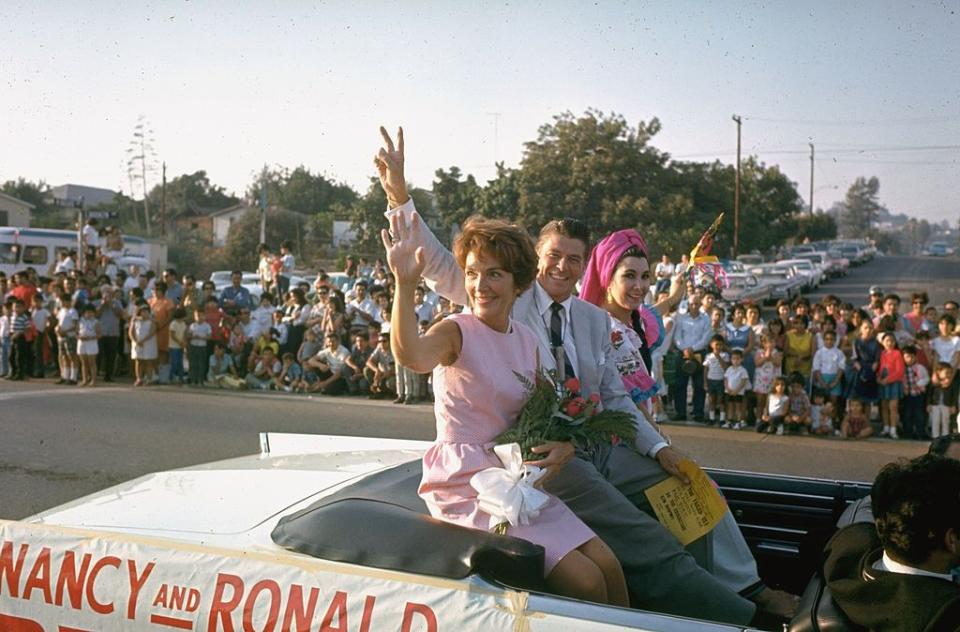
So, I think that they did build on the Kennedy legacy. They were obviously coming from a very different part of the political spectrum, but the Reagans were also flashback people. They were projecting an image from an earlier era, a pre-feminism, Cold War [era], and the Kennedys were very much like that. So, there was a bit of a kind of Back to the Future, time warp feeling to the Reagans that I don't think Americans quite were conscious of, frankly. I think it was just there.
If the American people weren’t conscious of this “time warp” feeling, do you think the Reagans were?
Oh yes, especially Nancy Reagan. I think she modeled herself on Jackie Kennedy. There's a lot of reporting about how she really wanted to get to know Jackie Kennedy and reached out to her on many occasions and was rebuffed. Nancy Reagan was actually very disappointed by this. You can also look at Nancy Reagan's 1960s fashion persona—pillbox hats and very tailored clothes and couture that is very much in the mold of Jackie Kennedy, but most women were at that time.
Turning to Nancy Reagan, the series shows that she had a large influence on her husband’s presidency behind-the-scenes. Do you think she planned for that?
Well, I think that by the time Reagan had matured as a politician, [he and Nancy Reagan] had become a team—a political team—and were so close as almost being inseparable. The issue with Nancy Reagan is that she tried to hide her power and influence, and this is really what I wanted to explore and reveal. I found that many people who knew them well, their own son included, Ron Reagan Jr., agreed that Nancy Reagan's influence not only in the marriage, but also her influence over policy was much greater than she was ever willing to admit, and much greater than the press was able to get at in the time of the presidency, and much greater than most people have acknowledged since.
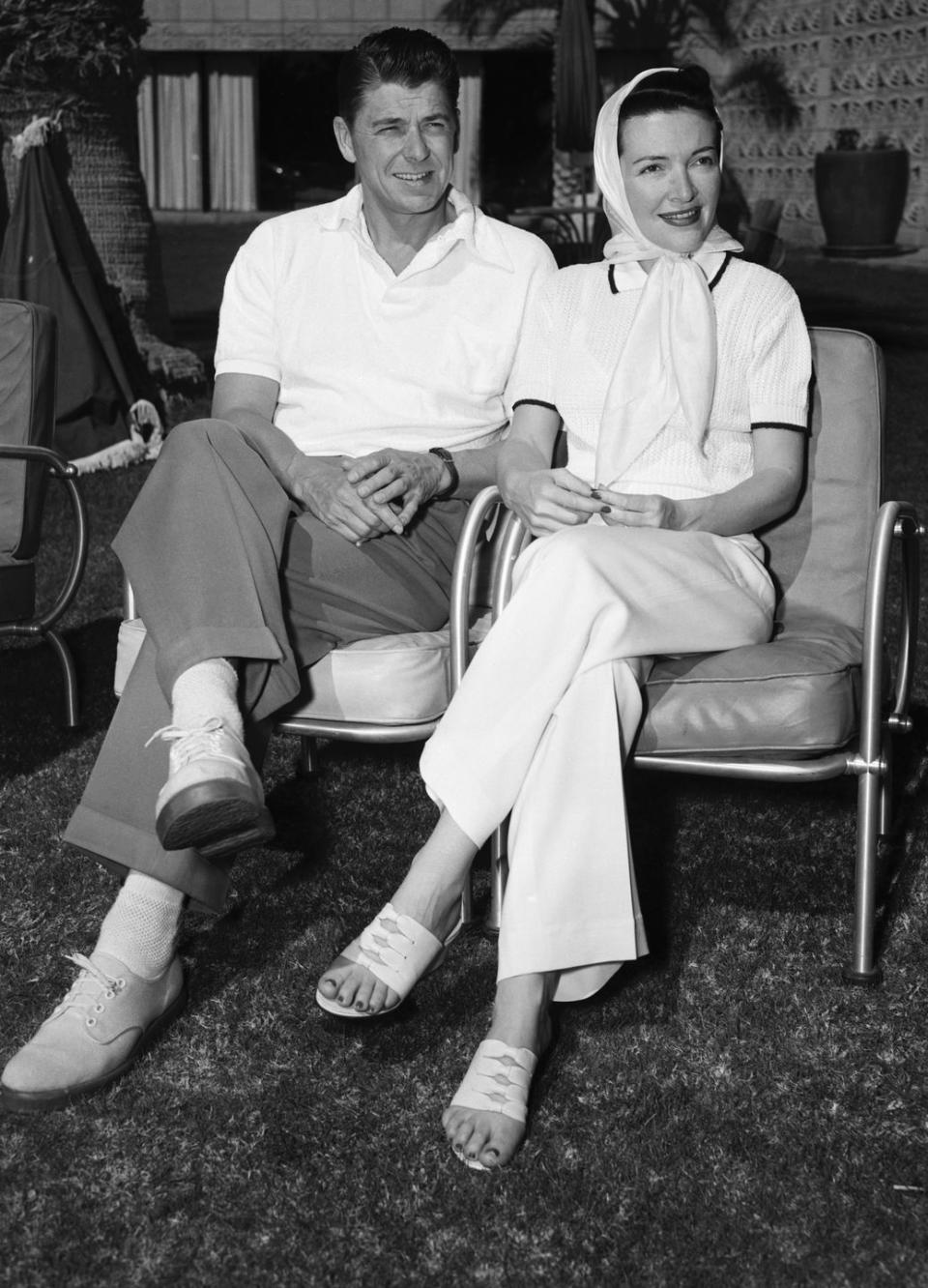
This is one reason why I wanted to make the series: From the time that Reagan became a politician, Nancy Reagan began to pull strings, take on a managerial role, and exerted an outsized influence over her husband's career. One explanation for that is that Reagan was always an actor at heart. He never stopped being an actor. And he is, in many ways, the ultimate performer as President. An actor needs a director and an acting coach and, in his era, a studio head. Nancy Reagan was all of those things and, during the presidency, I would argue, with the backing of several people whom I interviewed who were there and know, she became a policy influencer, as well.
And, as we find out in the series, Nancy Reagan brought astrology intro the presidency, too.
I think that people knew about the astrology at the end of the Reagan presidency. However, it was always maintained that the astrology had no influence over policy, but that was a lie. And now, the truth can be told—the astrology was what was really going on. And it wasn't just Nancy Reagan who was obsessed with astrology, Ronald Reagan himself was. He saw an astrologer long before he ever met Nancy Reagan.
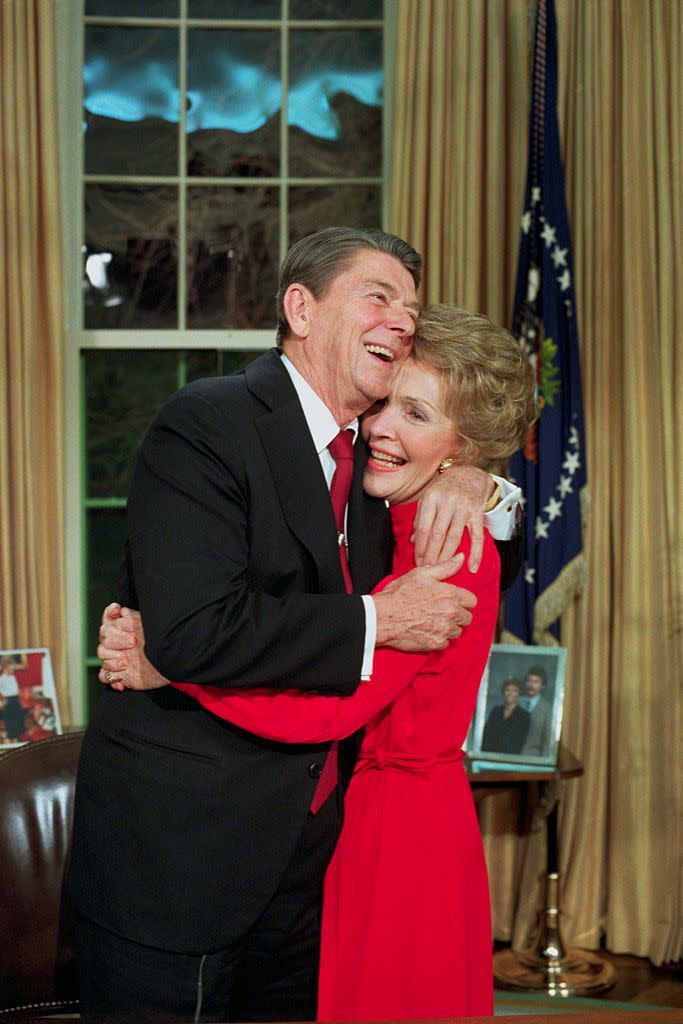
They had many astrologists over the years. Now, people discount astrology and the Reagan's interest in it as a hobby or something that's not of consequence. I disagree entirely. I think this was very much what was going on in the family quarters. I think it was very much dictating not only the president's schedule, but initiatives that were some of the most important of the era, including U.S.-Soviet relations. It was Joan Quigley who was the astrologer that the Reagans were using at the time, who, based on a reading of [Soviet Union President Mikhail] Gorbachev's chart, which had been commissioned by the Reagans, was advising them on how to conduct U.S. foreign policy vis-a-vis the Soviet Union. This is no small matter. And now you hear from people that were present at the time exactly what was happening.
Do you think that the docuseries ended up having a political slant one way or another?
It's not my mission or responsibility as a filmmaker to, to quote a fallacy, "[be] fair and balanced." I have a point of view and, I hope, I purposely bring that to all of my work. I do believe in setting out the facts and letting the viewer synthesize information that's presented to them. So, I don't make a shrill presentation and a strident case for or against anything. I don't express my opinion overtly, and I'm not prescriptive in anything that I create, but I'm not here to be an impartial observer.
The Reagans premiers on Showtime November 15, 2020 at 8 p.m. ET/PT. Watch Now
You Might Also Like
